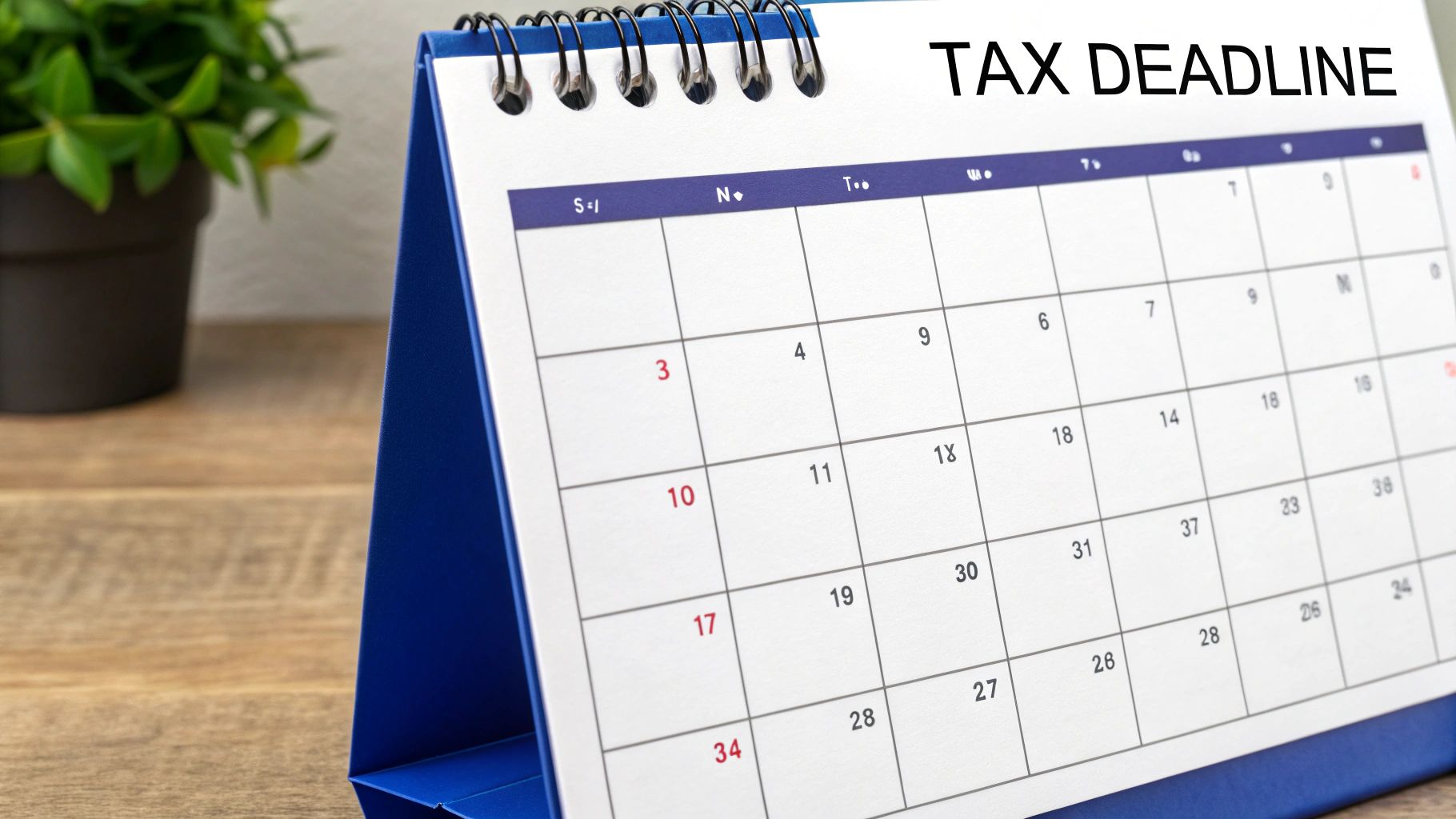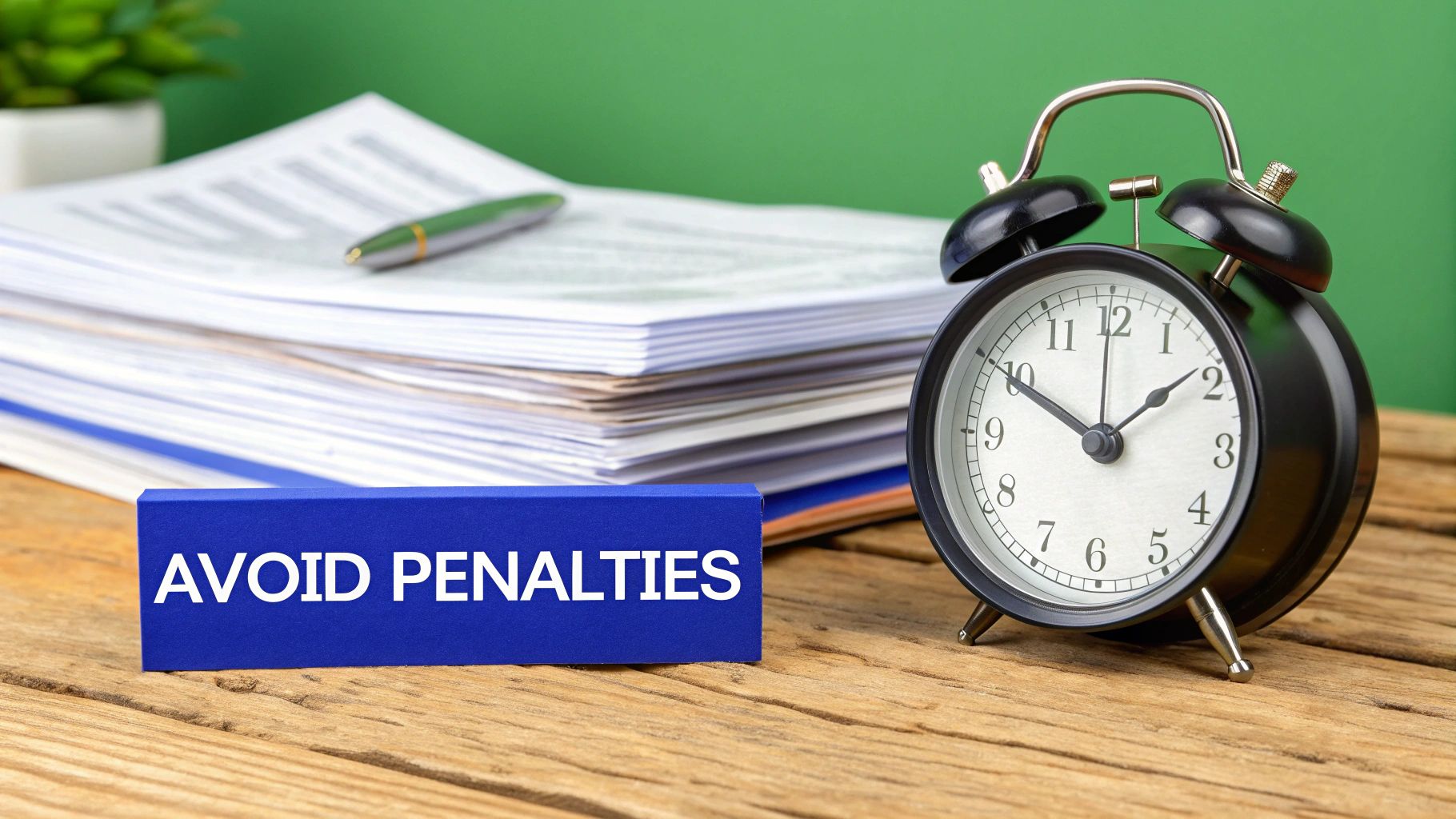
The official start date for lodging your FY 20242-25 Australian tax return is 1 July 2025. It’s the day the ATO’s virtual doors swing open, inviting you to submit your return.
Before this date, the ATO is busy working behind the scenes. Imagine them as diligent bees, gathering nectar (information) from employers, banks, and other financial institutions. This pre-filled data helps ensure accuracy and makes lodging your return easier.
While you can’t officially lodge before 1 July, the preceding weeks are crucial for preparation. Think of this time as getting all your ducks in a row.
This is your chance to gather your financial documents, like assembling pieces of a jigsaw puzzle. Income statements, bank interest records, and receipts for any deductions are all-important parts of the picture.
This groundwork paves the way for a smooth and efficient lodgement process once the 1 July start date arrives. Just as a well-rehearsed band is ready to hit the stage, you’ll be prepared to tackle your tax return efficiently and effectively. Understanding the tax timeline, not just for 2024 but looking ahead to 2025, and preparing early, is the key to a stress-free tax season.
Choosing how you lodge your return depends a lot on your specific situation.
For those going the DIY route and lodging through myGov, the 2025 tax return deadline is 31 October 2025. Think of it like a doctor’s appointment – you’ve got to be there by that date, no ifs, ands, or buts.
But bringing a registered tax agent into the mix changes things. They can often get extensions for their clients, sometimes pushing the deadline into the next year. This extra time can be a real advantage, allowing for more careful planning and potentially uncovering bigger deductions.
The decision of whether to self-lodge or use a tax agent really comes down to how comfortable you are with tax preparation and how complicated your finances are. The official deadline for Australian individual taxpayers to lodge their 2024 tax returns without a tax agent was 31 October 2024. Millions of Australians successfully lodged on time, demonstrating a high level of compliance.
To help illustrate the differences, let’s look at a comparison table:
2025 Tax Return Deadline Comparison: Complete breakdown of lodgement deadlines for different taxpayer categories
|
Lodgement Method |
Deadline |
Extension Options |
Late Penalty Risk |
|---|---|---|---|
|
Self-Lodge |
31 October 2025 |
None |
Yes |
|
Tax Agent |
Varies (potential extensions into the following year) |
Available through agent |
Reduced (with valid extension) |
The table summarizes the key differences in lodgement methods, deadlines, and the potential risks associated with late filing. Using a tax agent offers greater flexibility and reduces the risk of penalties. It’s like having a professional mountain guide when climbing a challenging peak – they know the best routes, potential hazards, and how to navigate tricky situations.
Learn more about Australian tax deadlines here: https://www.ato.gov.au/tax-and-super-professionals/for-tax-professionals/prepare-and-lodge/tax-agent-lodgment-program/tax-returns-by-client-type/individuals-and-trusts. This extra time you get with a tax agent allows for a more detailed approach, making sure every possible deduction is explored and your finances are in the best shape possible.
Think of hiring a registered tax agent as getting a backstage pass for your tax return. Instead of scrambling to meet the 31 October deadline like everyone else, tax agents have a different timetable, giving their clients extra breathing room. This is a huge plus, allowing for more careful planning and a much less frantic experience.
How much extra time are we talking about? Well, tax agent lodgement programs in Australia offer flexible deadlines that can stretch far beyond the usual 31 October cut-off. For the 2024 tax return, those working with a tax agent could potentially have until 15 May 2025 to lodge, depending on their individual situation and the type of return they need to file. In some special cases, this can even be pushed out further to 5 June 2025. Learn more about tax agent deadlines. This longer timeframe allows for a more detailed review of your finances, ensuring you’re claiming all possible deductions and getting the best possible tax outcome.
This extended deadline isn’t about favoritism. It simply recognizes that tax agents juggle many clients with a wide range of financial situations. The extra time lets them carefully examine each client’s specific needs, ensuring accuracy and exploring every legitimate avenue for deductions. Think of it like working with an architect to design a house. They take their time to understand your lifestyle, optimize the space, and make sure the final design is both beautiful and functional. Similarly, a tax agent’s dedicated approach can lead to bigger refunds and better financial health overall.
Imagine prepping for a big holiday. Throwing clothes in a suitcase the night before might work, but a bit of planning makes the trip far less stressful. The same applies to your tax return. The weeks leading up to July 1st are your chance to pack your metaphorical suitcase, ensuring a smooth journey when the ATO officially opens for lodgement.
This involves more than just rounding up receipts scattered across your desk. Just like double-checking your passport and tickets, verifying your income statement is crucial. Look for the “Tax Ready” label in your myGov account – this confirms the information the ATO has aligns with your records.
Think of your key documents as essential travel items. Income statements, bank interest details, and records of any deductions you plan to claim are your passport, visa, and travel insurance. Having them organized avoids a frantic last-minute search.
Another smart move? Patience. Waiting until at least mid-July allows the ATO’s prefill data to populate your return. This is like letting your GPS calculate the best route – it minimizes errors and the need for later amendments.
These simple preparations make lodging your 2024 tax return far less daunting. It’s also a great way to set yourself up for a smoother tax season when considering when is tax return 2025 due. By establishing a good system now, you’ll thank yourself later.

While the ATO officially opens for FY 2024-25 tax return lodgement on 1 July, rushing in isn’t always the smartest move. Think of it like baking a cake: throwing it in the oven before it’s properly mixed will likely result in a disappointing outcome.
The ATO’s pre-fill system works by gathering data from different places. These sources, such as your employer and bank, need time to submit their information to the ATO.
Lodging your return before this data arrives is like starting a jigsaw puzzle with missing pieces. You’re working with incomplete information.
What are the potential consequences? You might encounter frustrating delays, requests for amendments, or even penalties. Imagine submitting your return, expecting a smooth process, only to discover your employer’s data hasn’t been processed. This can lead to an incorrect assessment and a smaller refund than you’re entitled to.
Finding the right balance is key. Aim for early lodgement, yes, but allow the ATO’s systems sufficient time to update. Waiting until mid-July often strikes the right balance between speed and accuracy, maximizing your chances of a swift and correct refund. This principle also holds true for future lodgements, such as when you’re considering lodging your return in 2025. A little patience can save you a lot of hassle later.
Missing the 31 October tax deadline in Australia might feel a bit like missing your bus – a minor setback, but not a catastrophe. The ATO understands that things happen, and they’re not going to immediately hit you with a huge fine. Think of it more like getting a friendly reminder, which might become a little more insistent if you continue to delay your 2024 tax return.
Imagine the first contact as a gentle nudge, like a post-it note reminding you about that library book you haven’t returned. This initial communication might be a non-compliance letter. It’s not a penalty, just a heads-up from the ATO to get your lodgement sorted. It’s a good opportunity to reach out to them, explain your situation, and potentially avoid any further action.
If you continue to miss the deadline and haven’t contacted the ATO, those reminders might get a little firmer. Eventually, a failure to lodge (FTL) penalty might come into play. This penalty increases for every 28-day period your return is overdue, up to a maximum of five periods. The ATO’s goal is to encourage everyone to file their returns, not to penalize people unnecessarily. Just like the library isn’t trying to make money off late fees, they just want their books back! When the 2024 tax return deadline arrived, the ATO expected a certain number of late lodgements, similar to patterns they’ve seen in past years. You can find more details on tax deadlines and penalties here: ATO Lodgement Penalities.
So, what’s the best course of action if you’ve missed the deadline? Proactive communication is key. Get in touch with the ATO as soon as possible. Explain your situation honestly. They’re usually quite understanding and can help you figure things out. Think of it like calling the library and explaining why you’re late – a little communication goes a long way. Knowing what to expect and taking action puts you back in control, minimizing any potential consequences.
Now that you know the key dates for the 2025 tax season, let’s map out a personalized action plan. Think of this as your roadmap to a stress-free tax experience. Whether you’re lodging through myGov or working with a tax agent, having a plan is essential.
Imagine preparing for a road trip. You wouldn’t just hop in the car and start driving without a map, would you? Similarly, tackling tax season requires some preparation. Here’s your step-by-step guide:
Before July 1st, 2025: Gather all your necessary documents. This is like packing your bags for that road trip. You’ll need your income statements, investment details, and any records that support your deductions. Make sure your income statement is marked “Tax Ready” in myGov.
From Mid-July 2025: Give your pre-fill data time to appear in your return. This is like letting your GPS calibrate before you start driving. It ensures accuracy and minimizes the need for revisions later on.
Decide on Your Lodgement Pathway: Choose between lodging your own return via myGov (deadline: 31 October 2025) or using a registered tax agent (extended deadlines may apply). Think of this as choosing between driving yourself or hiring a chauffeur.
Regular Check-ins: If you’re using a tax agent, stay in touch with them to address any questions or provide additional documentation. If you’re self-lodging, keep an eye on your myGov account for updates and notifications. This is like checking your fuel gauge and making sure you’re still on the right track.
This structured approach helps you keep track of when your 2025 tax return is due and all other important deadlines. Remember, a well-planned tax season means less stress and a better chance of maximizing your refund.
For expert assistance with your 2025 tax return, consider working with Nanak Accountants and Associates. Our experienced team can help you navigate the complexities of tax season and ensure you get the best possible outcome. Visit us today at Nanank Accountants & Associates to learn more.
The information on this website is for general informational purposes only and should not be considered financial, taxation, or legal advice. While we strive for accuracy, Nanak Accountants does not guarantee the completeness or reliability of the content. Laws and regulations change over time, and we recommend consulting a qualified professional before making any financial or business decisions. Nanak Accountants is not liable for any loss or consequences arising from reliance on this information. For personalised advice, please contact Nanak Accountants directly.